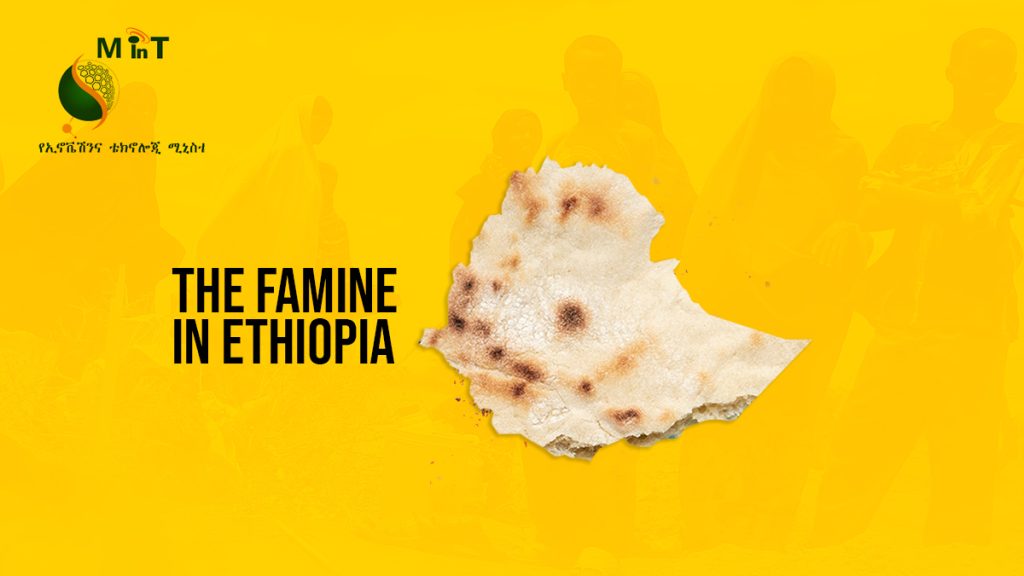
A humanitarian crisis is taking place in the Horn of Africa. The shadow of the worst drought in decades is about to take the lives of millions. Ethiopia, Somalia, and Kenya struggle to find enough food to eat. Millions have fled their homes, especially after the prediction of a dry raining season. This famine is predicted to be worse than in the 1980s, almost claiming a million lives. The Ministry of Science and Technology(Ethiopia) is trying valiantly to offer solutions. Harnessing telecommunication potential in truly unprecedented ways.
Why Is It Getting Worse
Climate change has introduced extreme weather patterns to the region, and Africa’s countries now have to deal with drought and flash floods more frequently. The continent’s problems have been made worse by the coronavirus pandemic and Russia’s invasion of Ukraine, making it more expensive and challenging to obtain supplies of food, fuel, and fertilizer. Since then, food costs have decreased, but most people have yet to feel the benefit. Even though severe droughts are also occurring in parts of the US, Europe, and other regions, they are better prepared to deal with the consequences than resource-constrained African countries.
Moreover, locusts flourish in hot, dry climates and destroy crops in most of eastern Africa. Internal strife has also plagued Ethiopia and Somalia, disrupting agriculture and making assistance distribution risky. Recent world events like the pandemic and the war made the situation even worse in the horn of Africa. Violence in the region itself has caused more pressure. The political uneasiness of the region is adding weight to the already heavy burden that these countries have to carry. With the Ministry of Science and Technology(Ethiopia) is leading efforts to limit the ripples of such events.
The Ministry of Science and Technology (Ethiopia) Efforts
The Ministry of Science and innovation is fighting against famine alongside the banking sector. The government is encouraging foreign banks to lend local banks money for a percentage of the bank itself. In the hopes of encouraging investors to invest money in the country. This will revitalize the economy in the country and increase foreign currencies circulating the market. Hopefully, uplifting the state of the economy will help reduce the severity of the famine. Moreover, the efforts of the Ministry of Science and Technology(Ethiopia) have expanded to include many technology-based solutions in the hopes of pushing back the crisis.
Adding Blockchain to the Equation
People affected by complex crises frequently need assistance to ensure they can get necessities like food, shelter, and medical treatment. A blockchain network called Building Blocks can help different humanitarian organizations better organize their aid, especially when working with people in difficult conditions. Organizations, like the ministry of technology and science, make a monthly deposit into a blockchain account assigned to each individual. Beneficiaries may redeem all of their rights from these accounts at once. As a result, providing aid to those in need is more straightforward, quicker, and more secure. Such a solution remains ambitious, but it is an excellent solution to work towards nonetheless.
Optimizing the Supply chain
Technology, with the ministry of communication and information technology in Ethiopia, is working together to optimize the supply chain of donations and funds. A properly optimized supply chain can lead to many savings on wasted contributions, leading to more help spreading around. In addition, an optimized supply chain can reduce costs. The money donated now can be used more effectively to deliver aid across the country.
Empowering Through Smartphones
People are more reachable now than ever through smartphone apps that can gather donations that can be used to get food so it can be delivered to the victims. In the era of connectivity, no one should remain uninformed about global crises. Telecom companies can offer donations through SMS and various other ways. Organizations could elevate Ethiopian innovation and technology. A digital streamline, alongside the spread of information, can be a perfect method to apply the solutions. Excuses should be kept to a minimum, while efforts should be front and center.
Concluding Thoughts
Other sub-Saharan nations, including South Sudan, Sudan, Niger, Burkina Faso, and Mali, are dealing with their food problems. In September, the International Monetary Fund predicted that 123 million people in the region, or 12 percent of the total population, would be unable to fulfill their basic dietary needs. This is an increase of 28 million in just two years. High food prices, low incomes, severe weather, insecurity, and supply chain disruption were contributing reasons. Knowing this should never underplay the urgency of the situation in Ethiopia, yet hunger is a plague devouring Africa. World hunger needs to be stopped, whatever the costs. Telecommunication will be at the core of all solutions.
Inside Telecom provides you with an extensive list of content covering all aspects of the tech industry. Keep an eye on our Impact section to stay informed and up-to-date with our daily articles.